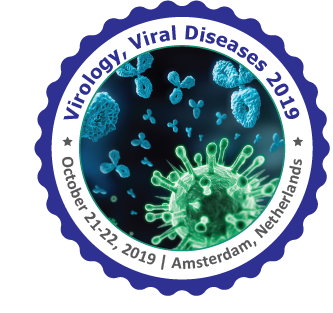Mohammad Rabiei-Faradonbeh
University of Adelaide, Australia
Title: Comparison of protection and viral shedding following vaccination with homologous and heterologous Newcastle disease virus strains
Biography
Biography: Mohammad Rabiei-Faradonbeh
Abstract
Introduction: Despite a high level of vaccination, Newcastle disease (ND) still causes large mortality and reduces profitability in the chicken industry in South-East Asia, particularly in Indonesia. This evidence triggers a big question about the ability of commercially available Newcastle Disease virus (NDV) vaccines for the protection of poultry against currently circulating ND viruses.
Methods: In this study, we isolated and sequenced highly virulent circulating NDVs in vaccinated flocks in West Java and Papua islands in Indonesia to identify the most frequent circulating NDVs causing vaccine failure in poultry farms. Furthermore, a challenge experiment designed using homologous and heterologous vaccines in experimentally infected birds. Quantitative PCR of fusion gene has been used for the monitoring of virus shedding in experimentally infected and naturally virus exposed birds.
Results: Sequence analysis of 18 selected isolates from vaccinated flocks showed that circulating isolates with high mortality (>90%) have significant homology to Genotype 7 (G7) but harbor G6 genetic determinants in their fusion gene, named newly emerged Genotype 7(NE G7). Challenge experiment showed that vaccination using homologous (NE G7) strains, remarkably increases protection against circulating NDV in comparison to the current heterologous G2-based vaccination strategies. More importantly, monitoring of virus shedding by quantitative PCR of fusion gene demonstrated that while homologous vaccination significantly decreases virus shedding (p<0,05, Tukey test), heterologous vaccination has high level of viral shedding similar to non-vaccination in first 3 days post challenge. Both of the commercially available vaccines and the G7 NDV vaccines could protect the challenged birds against the clinical forms of the ND.
Conclusion: High virus shedding of current vaccination strategy contributes in recurrent occurrence of Newcastle disease outbreaks in recent years. Most (84.4%) of the available NDV vaccines in Indonesia belong to the genotypes 1, 2, or 6 that are not able to provide a satisfactory level of protection against shedding G7 strains in infected birds. Altogether, this study documents circulation of NE G7 in vaccinated flocks in Indonesia and highlights the ineffectiveness of the current vaccination strategies.

